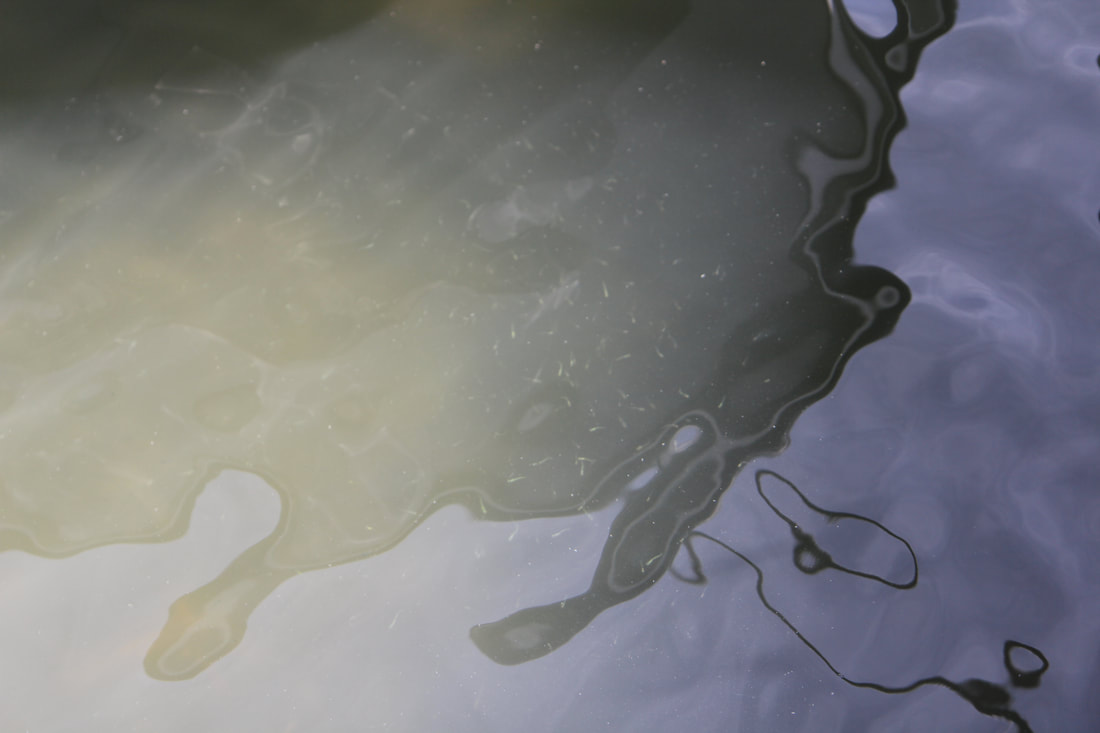|
Climate change and oil pollution are two enormous threats to the marine environment, but are rarely thought of as linked.
An editorial by Mark Hartl, Associate Professor of Marine Biology and Director of Centre for Marine Biodiversity and Biotechnology at Heriot-Watt University, persuasively argues that researchers need to begin exploring the connections between these two phenomena. Major accidental spills, while often dramatic, are not the most insidious oil pollution in the waters. The most impactful spills, Harlt writes, are often the accumulation from small amounts of chronic oil pollution, such as runoff from land or oil intentionally dumped by ships. While "organisms might look and behave perfectly normal," following these events, he writes, "it is only over time does the chronic exposure to low-level pollution take its toll." By the time the damage becomes obvious, he continues, it is "often it is too late to do anything to save a particular population, whose decline might have knock-on effects on the surrounding environment, often with socio-economic consequences." One way scientists can track the impacts of these smaller spills is by studying a series of biomarkers which appear at the cellular level when an organism is exposed to oil. These markers can take several forms, Hartl writes, "some can be purely biochemical, manifesting themselves as damages to DNA, alterations to the activity of enzymes involved in metabolism, structural damage to cells and their subsequent ability to perform properly, as well as more obvious pathological, reproductive or behavioural disorders." Dr. John Stegeman, a senior research scientist at Woods Hole Center for Oceans and Human Health in Massachusetts, for example, has been studying a biomarker called Cytrochrome P4501A (CYP1A), a protein that appears when deep sea fish have been exposed to the toxins in oil. What happens is that when a fish comes into contact with oil, some of the most toxic parts of oil (known as polycyclic aromatic hydrocarbons, or PAHs) enter the bloodstream after being inhaled or absorbed through the skin. Once these PAHs are inside of the fish, they set off its cellular defenses, which produce CYP1A in an attempt to render the PAHs harmless. CYP1A, explains Dr. Stegeman, acts as a biological fingerprint that indicates if an organism has been exposed to the PAH's in oil. (You can learn more about that right here!) So what do biomarkers like CYP1A have to do with climate change? Hartl is concerned that rapid changes in the ocean, brought about by the impacts of climate change, may make it much harder for scientists to search for and find these subtle indications that damage is being done to the marine environment. He cites the latest Intergovernmental Panel on Climate Change (IPCC) report on climate change which confirms that the upper 75 meters of the world’s oceans have been warming at a rate of 0.11°C per decade since at least 1971 and the uptake of CO2 caused by human pollution has depressed pH (acidity level) by -0.0014 to -0.0024 per year, and that these impacts are predicted to continue. Hartl argues that as waters warm and becoming increasingly acidic the traditional approach to studying biomarkers may no longer be effective for analyzing how oil pollution affects marine life. Changes in the water may cause species to respond differently to pollutants, which in turn will affect the data that scientists can gather on oil or other chemical toxins in the water. The takeaway? Climate change is impact many facets of life on both the land and sea -- and marine scientits need to be alert to its impact on the study of marine pollution. "By the time [the effects of oil pollution] becomes obvious," warns Hartl, "it is often too late to do anything to save a particular population, whose decline might have knock-on effects on the surrounding environment, often with socio-economic consequences. So there is not only a moral responsibility to look after the environment, but also a strong financial incentive, because many jobs and livelihoods depend on a healthy environment and its ecosystems." Learn more about Hartl’s thoughts about fine-tuning the study of biomarkers to account for climate change at The Conversation. |
Details
AuthorMarine Defenders is an educational program designed to reduce chronic oil pollution. Archives
February 2019
Categories
All
|

 RSS Feed
RSS Feed